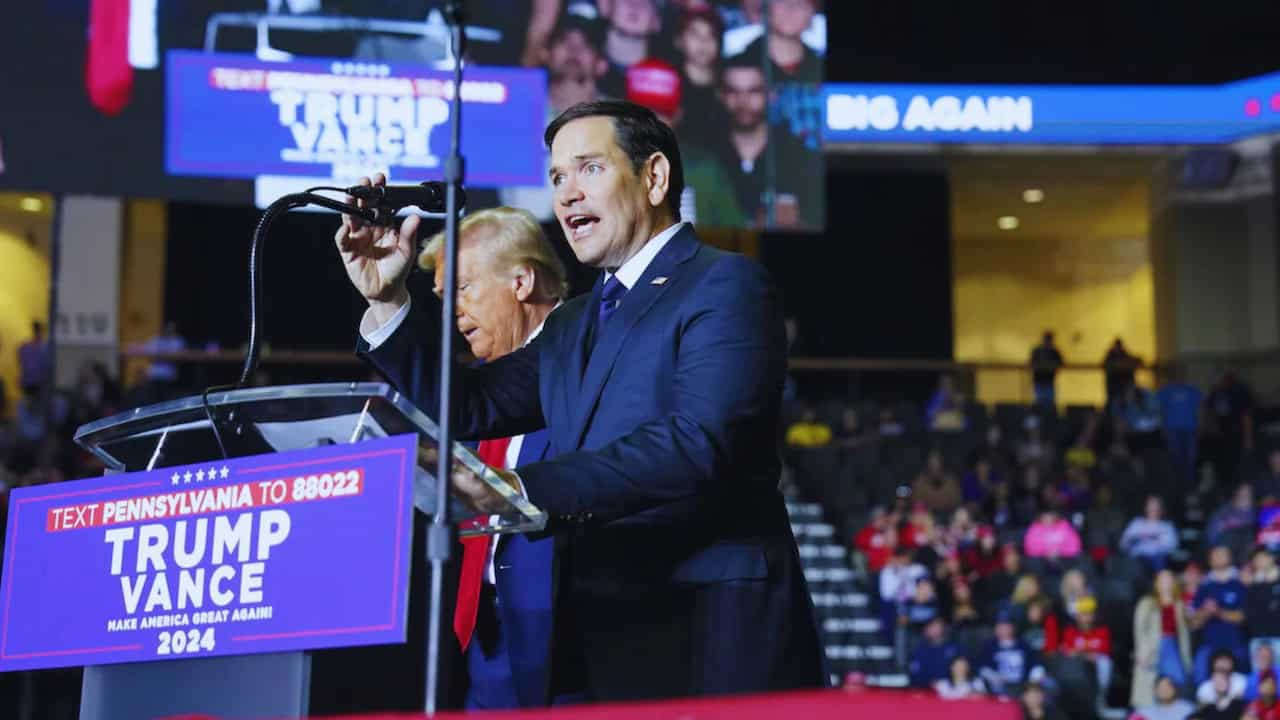Breaking: Trump Names Marco Rubio as Next Secretary of State, Signaling Shift in U.S. Foreign Policy
Former President Donald Trump has nominated Florida Senator Marco Rubio as his pick for Secretary of State, marking a significant shift in American foreign policy leadership. The announcement comes as Trump assembles his cabinet following his historic return to the White House.
From Rival to Right Hand
In a remarkable turn of events, Rubio, once Trump’s fierce critic during the 2016 presidential primaries, is now poised to become America’s top diplomat. The 53-year-old senator brings extensive foreign policy experience from his time on the Senate Foreign Relations and Intelligence committees.
“In his first public statement, President-elect Trump’s trust deeply honors me,” Rubio said. “As Secretary of State, I will work tirelessly to advance America’s interests globally while strengthening our partnerships with allies.”
A Hawks’ Alliance
The nomination signals a potential blend of Trump’s “America First” approach with Rubio’s traditionally hawkish foreign policy views. There are several key areas where their positions align.
- Israel is receiving strong support in its ongoing conflict with Hamas.
- Both leaders maintain a firm position towards China, considering Beijing as America’s main global rival.
- Although Rubio has historically backed NATO more strongly than Trump, there is skepticism about unlimited aid to Ukraine.
- Both sides maintain a firm stance against Iran, advocating for the highest level of pressure on Tehran.
Latin America in Focus
As the son of Cuban immigrants, Rubio brings unique insights to Latin American policy. He’s expected to:
- Push for tougher measures against Cuba, Venezuela, and Nicaragua.
- Strengthen ties with conservative governments in the region.
- Counter Chinese influence in the Western Hemisphere
- Address migration challenges while balancing humanitarian concerns.
Challenges Ahead
If confirmed by the Senate, Rubio faces several immediate challenges:
- We are managing the Israel-Gaza conflict while preventing regional escalation.
- We are navigating the Russia-Ukraine war and NATO relationships.
- Addressing Chinese economic and military expansion
- We are managing migration crises and border security issues.
- Rebuilding strained diplomatic relationships with key allies
Market Impact
Global markets have responded cautiously to the nomination. While some analysts praise Rubio’s experience, others worry about potential trade tensions with China and shifts in Middle East policy.
What’s Next
The nomination now moves to the Senate for confirmation hearings. Despite potential questioning from both Democrats and some Republican isolationists, Rubio’s Senate colleagues generally respect him, suggesting a likely confirmation.
“The world is watching closely,” says Dr. Sarah Chen, international relations expert at Georgetown University. “Rubio’s nomination could mean a more predictable foreign policy, even as it maintains Trump’s core priorities.”
Looking Ahead
As America enters this new chapter, the Trump-Rubio partnership faces immediate tests:
- Managing multiple global conflicts
- Rebuilding international alliances
- Addressing economic challenges with China
- Handling migration and border security
- Strengthening Western Hemisphere relationships
The success of this partnership could define American foreign policy for years to come, as the nation navigates an increasingly complex global landscape.
